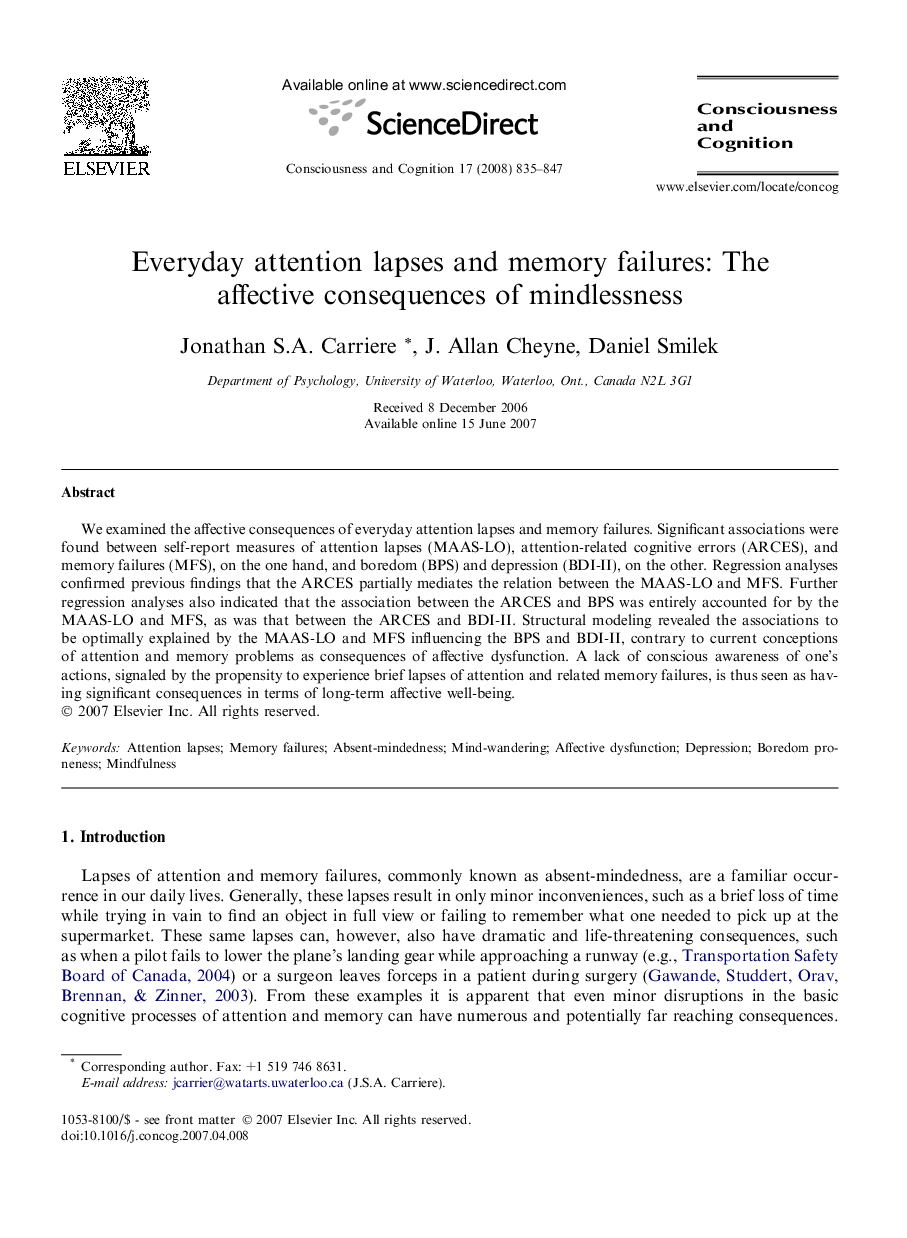| Article ID | Journal | Published Year | Pages | File Type |
|---|---|---|---|---|
| 928058 | Consciousness and Cognition | 2008 | 13 Pages |
We examined the affective consequences of everyday attention lapses and memory failures. Significant associations were found between self-report measures of attention lapses (MAAS-LO), attention-related cognitive errors (ARCES), and memory failures (MFS), on the one hand, and boredom (BPS) and depression (BDI-II), on the other. Regression analyses confirmed previous findings that the ARCES partially mediates the relation between the MAAS-LO and MFS. Further regression analyses also indicated that the association between the ARCES and BPS was entirely accounted for by the MAAS-LO and MFS, as was that between the ARCES and BDI-II. Structural modeling revealed the associations to be optimally explained by the MAAS-LO and MFS influencing the BPS and BDI-II, contrary to current conceptions of attention and memory problems as consequences of affective dysfunction. A lack of conscious awareness of one’s actions, signaled by the propensity to experience brief lapses of attention and related memory failures, is thus seen as having significant consequences in terms of long-term affective well-being.
